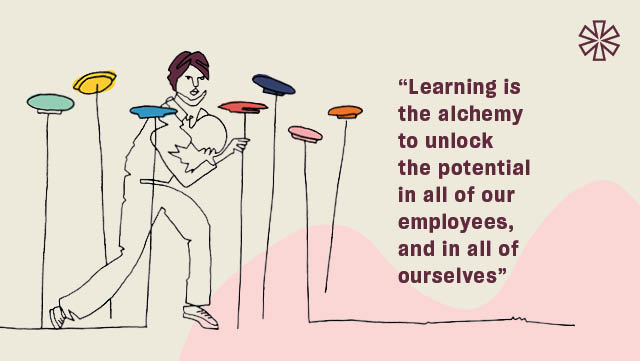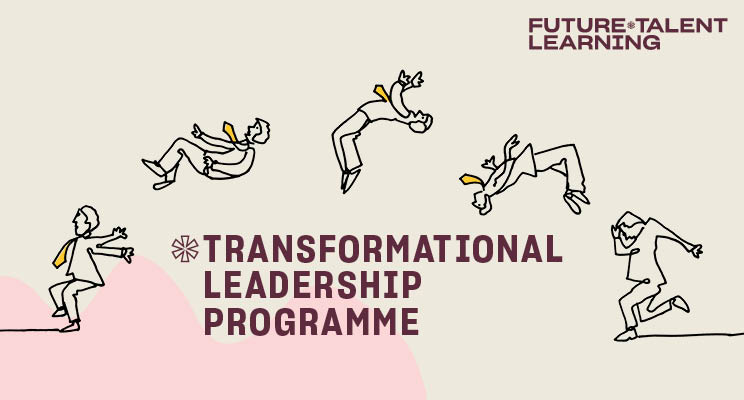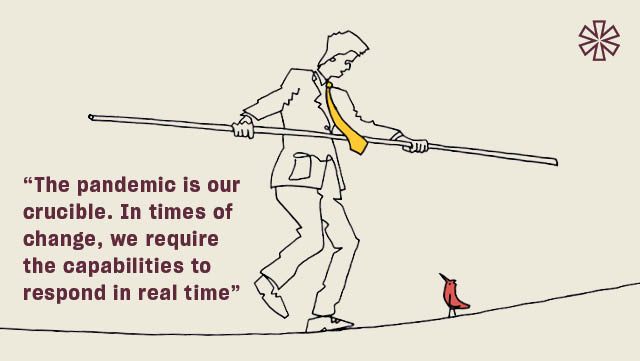In light of the current pandemic, The Crucible's message about learning, adapting to disruption and shaping the future, has never been more relevant for leaders, writes Future Talent Group CEO, Jim Carrick-Birtwell.
“Transformative change rarely happens without a catalyst and a crisis. A crucible. A time of profound trial at the end of which something new and much better emerges. The term comes from the vessel used by medieval alchemists that withstood extreme heat to turn base metals into gold”.
So wrote Arianna Huffington a couple of months ago, in a blog post that helpfully distilled a number of thoughts I’d had since the breakout of COVID-19. From the start, I was aware of its alchemical nature. A strong sense, shared by many others, that things would never be the same again after this pandemic.
Huffington’s image of a crucible triggered a memory of Arthur Miller’s seminal 20th century play of the same name. For him too, The Crucible took on a metaphorical meaning – a melting pot in which the Salem witch trials created a living connection with the anti-communist ‘witch-hunt’ trials conducted under senator McCarthy in the US in the 1950s.
In his brilliant autobiography, Timebends (which I’d highly recommend; it’s the longest book I’ve read twice), Salem in the 1690s and Washington in the 1950s became fused in Miller’s imagination.
The Crucible became a play about a transformative experience which revealed a fundamental weakness in US society.
The implicit message of the play is the need for every individual to be responsible for learning from the past, and therefore for also shaping the future.
In times of change, we require the capabilities to respond in real time
We find ourselves in a crucible now. The severe trials of the pandemic have revealed fundamental weaknesses in our society – many of which we knew about but were content to ignore. COVID-19 has made it all too clear that we cannot continue to live and work in the way we have.
In the work sphere – as individuals and organisations – we need to become more adaptable and develop the capabilities to respond in real time to our changing world.
Over the past decade, Changeboard’s annual Future Talent conferences have explored the various ‘skills to thrive’ that we all need to develop in light of this evolving world of work. The existential backdrop has been technology: AI and machine learning. On the horizon: climate change. COVID-19 has placed the need to change and respond in an agile manner firmly on today’s to-do list.
Leadership skills for the many, not the few
In my many conversations with business leaders, the consensus is that it’s not enough to improve leadership capabilities at the very top of the organisation, or to limit it to a putative group of high-potential leaders.
To respond effectively, and to navigate the scale and pace of change, organisations urgently need to up-skill every employee’s ability to explore, learn, and grow.
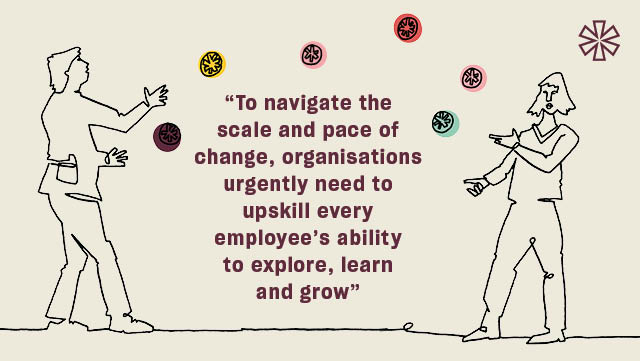
Up-skilling and soft skills development is directly connected to productivity
Making every effort to retain workers has been just the first step in the mission to sustain our businesses during this pandemic. To protect productivity, innovation and creativity (Shakespeare wrote King Lear while quarantined against plague) we must continue to engage and stimulate our talent, supporting people to adapt, collaborate and to remain mentally healthy. Safeguarding their sense of belonging and connection is core to achieving this.
We also need to future-proof our organisations, thinking ahead to the return of ‘business as usual’. As we begin to emerge from the days of isolation, employees (like customers) will remember the companies that continued to invest in their wellbeing and development – and those that didn’t.
Purpose, the new watchword in the business lexicon, has to be linked to humanity.
While many ways of motivating staff may still currently be unavailable to us, learning programmes are not. In LinkedIn’s 2019 Workforce Learning Report, 94% of employees said that they would stay at a company longer if it invested in helping them to learn. HR directors I have spoken to have echoed this hunger for development among employees of all ages.
Developing people now shows commitment to their immediate retention and longer-term careers.
Emotional intelligence, decision making, critical thinking, self-awareness. The skills we all need to thrive
In a knowledge-based economy, people need the emotional intelligence to thrive; they must excel in communication, decision making, critical thinking and self-awareness.
Only 25% of long-term career success depends on technical knowledge, according to Stanford University.
Research by PwC found that 79% of CEOs are concerned that a lack of essential skills in their workforce is threatening the future growth of their organisation and is a key concern in all regions across the world. This compares to just 63% in 2014 – confirming that concern over skills has risen in line with the advent of new technologies over the past five years.
This trend will have been accelerated by the pandemic of 2020.
Capabilities not competencies: reimagining productivity
Harvard Business Review (HBR) recently conducted extensive interviews with 21 heads of learning across 19 major companies. Its article on 'Transformer CLOs [Chief Learning Officers]' corroborates and refines the definition of what’s needed, urging a focus on capabilities rather than competencies to future-proof both individual and corporate success and productivity.
Organisations with the most successful and dynamic learning cultures focus less on teaching currently needed skills and more on developing mindsets and behaviours that can enable employees to perform well in tasks that may not yet be defined.
The unexpected emergence of the current pandemic has taught us all that we can’t predict the skills and capabilities that we’ll need, so there’s a premium on the need to develop an agile mindset and transferable skills.
World-class learning is innovative, digital and tech-rich
The HBR article goes on to describe how the most progressive organisations and their heads of learning are transforming learning methods with a range of innovations.
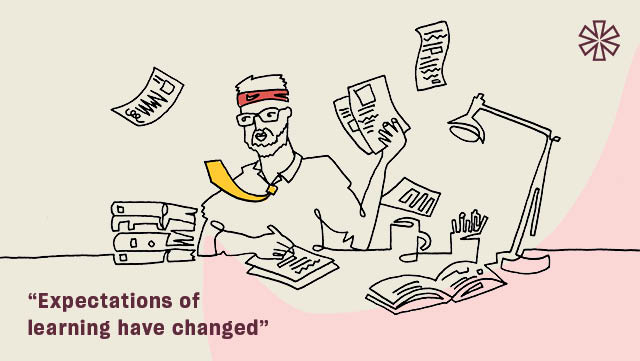
Expectations of learning have changed. Nowadays, people expect learning not to feel like learning – it should fit seamlessly within the flow of their lives. It should feel like fun and engage you to continue learning – much like a Netflix series compels you to keep on watching.
Digital instruction expands the reach of learning opportunities to more employees, without companies having to worry about enrolment numbers, scheduling conflicts, or travel costs. Individuals can access learning when and where they need it.
‘Chalk and talk’ training is not enough for tomorrow’s leaders
Progressive organisations are taking advantage of these developments. Perhaps most visibly, they’re moving away from traditional classroom training in which people are exposed to the same content for the same amount of time, regardless of their particular needs and levels of understanding.
Instead, they are personalising, digitising, and atomising learning. They are shifting their attention from specific courses to the whole learning experience.
To accommodate the different preferences employees have for how they absorb information, a growing number of companies now make training available through a variety of media – text, audio, video, and more. Transformer CLOs go even further.
They’re introducing innovations like gaming and simulations. They’re even exploring the use of AI to develop recommendation engines that, guided by individual and peer behaviour, will suggest tailored learning activities to employees.
In short, transformer CLOs do everything possible to create engaging and effective experiences that meet employees wherever they happen to be, geographically, temporally, or intellectually.
Learning is the new frontline of inclusion: democratising learning for all employees
As education has marked the path to freedom and enfranchisement in the past couple of centuries, I profoundly believe that learning is the new frontline of inclusion.
Becoming a learner is one of the most important skills you need to succeed in the 21st century.
In the age of technological change, staying ahead depends on continual self-education – a lifelong mastery of new models, skills and ideas.
In a world that’s changing fast, the ability to learn as fast as possible is quickly becoming a necessity. Most employees understand this, and so, unsurprisingly, it’s high up on their list of demands from their employers.
Employers recognise learning as a key tool for employee retention. The employee development proposition (EDP) is now the most important element of an employee value proposition (EVP).
Online learning: a cost-effective and efficient means of raising productivity, engagement, retention and development
Until recently, however, providing learning to all employees was too expensive.
Employees almost always had to be physically present at training sessions, which often meant travelling and missing time at work. That naturally limited the number of participants, making learning an exclusive rather than a democratic opportunity. Now, however, virtual efficiency is the new normal, and learning is expected to follow suit, or be quickly disregarded as the chalk and talk of a bygone era.
The recent overnight global experiment to go virtual (for everything; who knew?!), has accelerated the long-term trend towards online, on-demand access to bite-sized chunks of learning is what everyone expects; from YouTube videos and Joe Wicks work-outs to free online courses, including MOOCs.
Employees and employers are quickly realising that making learning open and accessible to all online is a reasonable and much more affordable expectation.
Future Talent: supporting lifelong learning for all
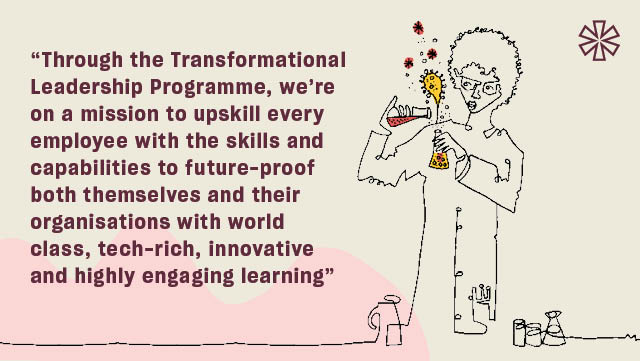
As a business, we’ve been instinctively honing our own capabilities to meet this evolving demand. Over the past 10 years, Changeboard has been on a purposeful journey of self-actualisation as it has evolved into committing itself to becoming a learning organisation.
Under the Future Talent brand, we’ve hosted more than 30 events a year all over the world that have aspired to make learning about the major themes affecting the world of work an inspiring process. As a producer, the rhetorical paradigm of ‘to teach, to delight, to move’ that I learnt from my late English tutor at University, the brilliant Dr. Avril Bruten, has been a guiding star.
I’ve been fortunate to have found enthusiastic co-conspirators among my peers and colleagues. Mary Appleton, our editor-in-chief, has championed social mobility, diversity and inclusion, and access to learning. Through the various award-winning publications that she and our team have produced over the last decade (such as Future Talent magazine and FutureTalentEd magazine) we’ve aimed to bring the world of work to life with myriad progressive and inspiring perspectives.
I’m extremely proud of our Future TalentEd business that does this for young people: to support careers leaders, we produce content and termly magazines about the world of work, free of charge, for every state secondary school and college in England.
We’d welcome any employer to get involved if you’d like to showcase the skills that you’d like your next generation of entry level talent to be developing alongside their academic qualifications while they are in education.
Why we launched the Future Talent Transformational Leadership Programme
Future Talent Learning has been in development over the past couple of years as a result of extensive conversations with HR directors, heads of talent and heads of learning & development (L&D).
Many employers have expressed the need for:
- more dynamic training for their managers
- learning that doesn’t feel like learning
- learning that participants enjoy and can put into practice right from the outset
“… And if that could be funded via the apprenticeship levy, so much the better”.
Future Talent’s Transformational Leadership Programme is designed to fit this brief entirely, allowing you to offer your managers and entry-level talent world-class, highly engaging, fully immersive online learning to nurture the mindsets, behaviours and capabilities they need to become better leaders.
Taking pressure off L&D budgets with virtual learning that works
At a time when learning budgets are under strain, the Future Talent Transformational Leadership Programme is fully funded through the government’s Apprenticeship Levy. All of a sudden, this ring-fenced payroll tax, introduced three years ago in England to increase UK productivity, has become a highly regarded tool in the armoury of HR and learning leaders.
The need has been to provide world-class learning programmes aligned to the levy which bear comparison to the best commercially-funded learning programmes.
We’re on a mission to provide exactly that: to up-skill every employee with the skills and capabilities to future-proof both themselves and their organisations with world class, tech-rich, innovative and highly engaging learning with the Transformational Leadership Programme.
Unlocking potential and purpose
That feels like purposeful work for the next decade. As Arthur Miller wrote: “Everything we are is at every moment alive in us”.
Learning is the alchemy to unlock the potential in all of our employees, and in all of ourselves. It’s a crucible for transformation in these times.
Jim Carrick-Birtwell is CEO and founder of Future Talent Learning, which delivers world class transformational leadership programmes funded through the Apprenticeship Levy.
To find out more about the Transformational Leadership Programme visit Future Talent Learning or contact us at learning@futuretalentgroup.com.
